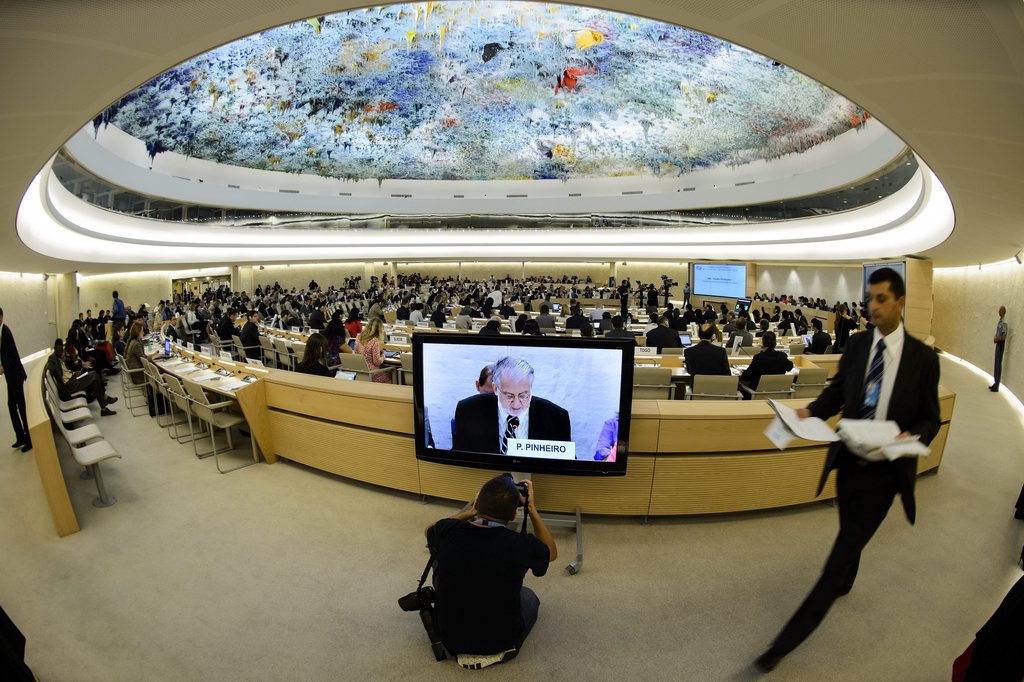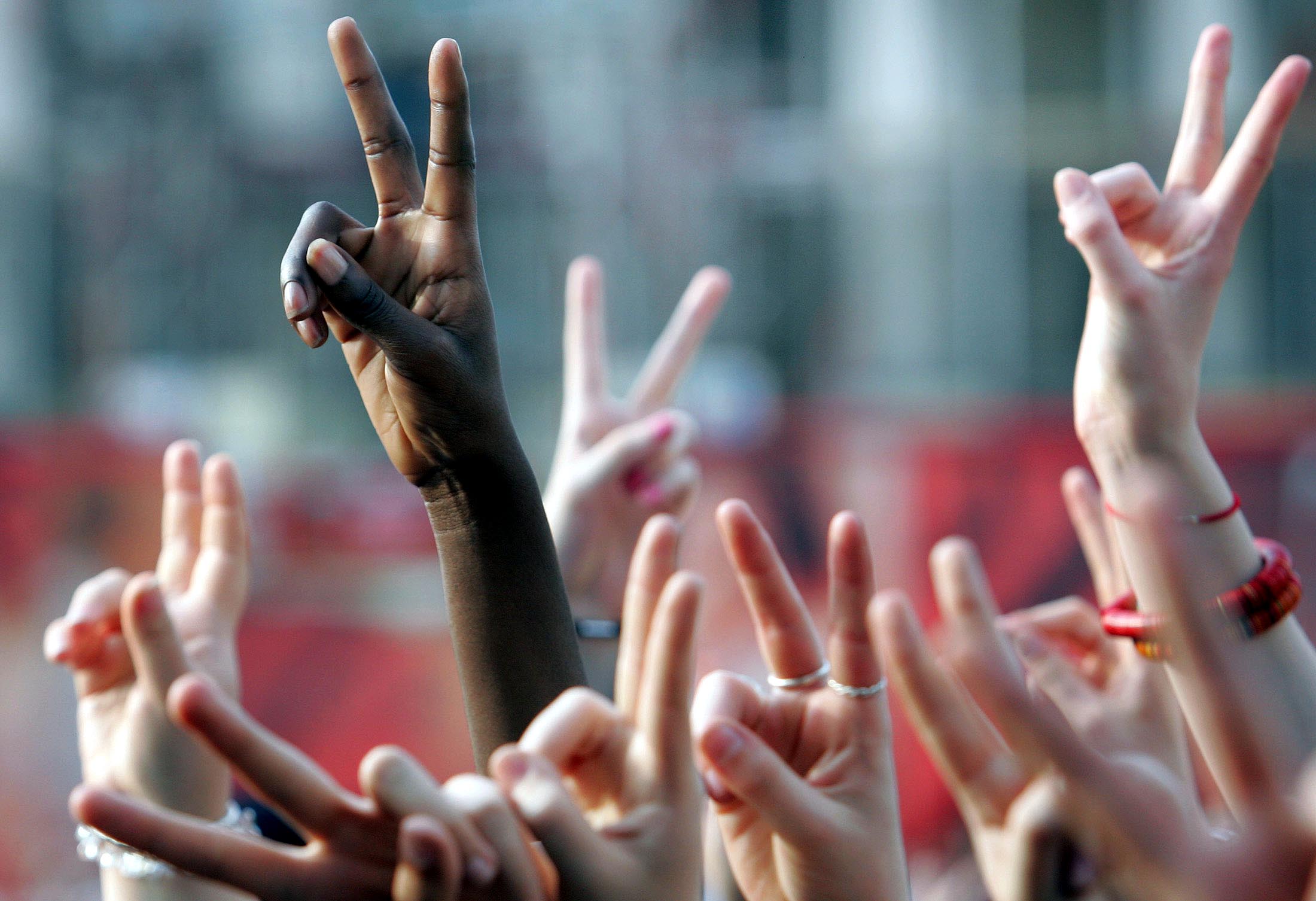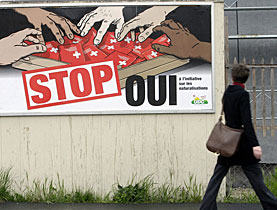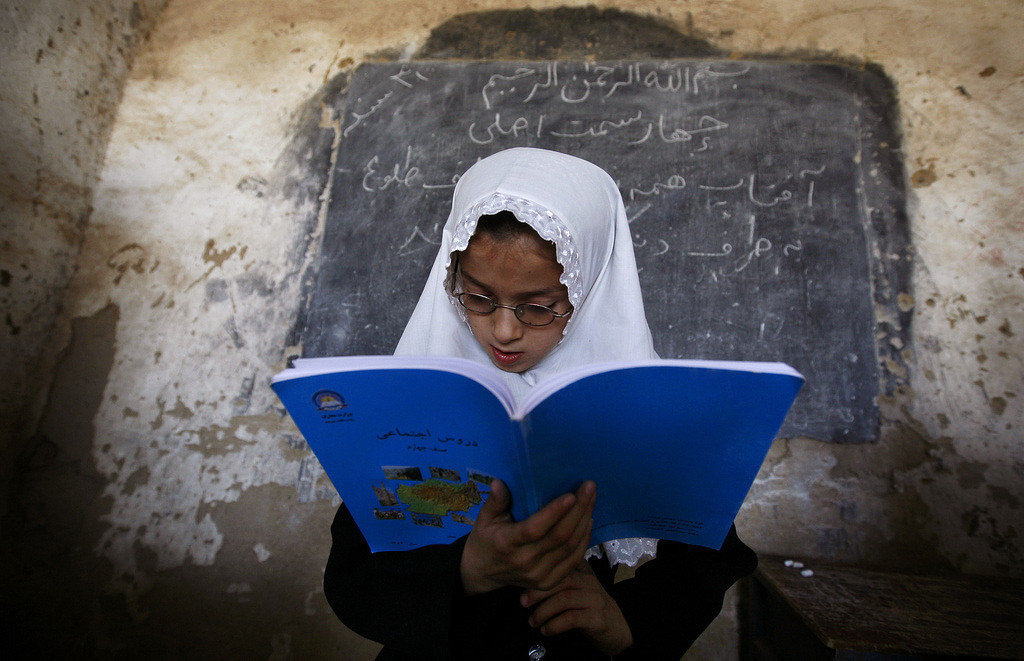Swiss drag feet over national human rights

Do states keep their human rights promises? The United Nations Human Rights Council should offer some proof of this during the second cycle of the Universal Periodic Review (UPR). Switzerland is back on the hot seat on October 29.
Since April 2008 the human rights records of all 193 UN member states have been scrutinized by the 47-nation Geneva-based rights council in a peer review process known as the UPR.
It is now Switzerland’s turn to make its second appearance before the council. Four years ago Switzerland was grilled by states on issues ranging from racism, migrant and women’s rights and naturalisations to the lack of a national human rights institution. It finally accepted 23 out of 31 recommendations made by the council to improve respect for human rights nationwide.
Following this first experience back in May 2008, Swiss ambassador Paul Seger declared that Switzerland would be studying the measures to be implemented over the coming months “to ensure the continuity of this review and not to limit it to a simple Geneva-based exercise every four years”.
According to Claude Wild, Seger’s successor at the head of the Swiss delegation appearing before the council this month, collaboration with civil society has been on going.
The Swiss foreign ministry is “in constant contact with members of human rights NGOs, covering the whole spectrum of human rights activities”, he noted.
But Alain Bovard, a lawyer at the Swiss section of Amnesty International, was less categorical.
“Following the first cycle in 2008, the Swiss foreign ministry organized a meeting. Then we didn’t hear anything for two years, there was no follow up. And it was only at the beginning of this year that talks started again under the guidance of the Swiss Centre of Expertise in Human Rights (SCHR),” he declared. “The NGOs have worked closely with Wild’s team to produce the Swiss report which explicitly outlines NGOs expectations. Not many countries do this.”
Promises
Switzerland made a number of promises after its first UPR such as ensuring systematic follow-up of recommendations, examining its asylum laws, signing and ratifying outstanding human rights treaties like the first Optional Protocol to the International Covenant on Civil and Political Rights and pursuing efforts to prevent and combat xenophobia.
The SCHR national human rights institution was finally launched in 2011, but looking back experts agree that progress has been slower than expected on many other recommendations.
“Switzerland accepted a certain number of important obligations. But took too long to worry about their implementation. In one of its studies last year the SCHR found that although various steps have been undertaken at the national level, very few recommendations have been implemented,” said Walter Kälin, a professor of international law and human rights specialist at Bern University.
Difficulties putting in place human rights recommendations within Switzerland may seem unusual for a nation which is extremely active trying to protect human rights worldwide.
Parliamentary influence
“The huge gap seems to be widening between Swiss international diplomatic action and internal [human rights-related] action by the national authorities,” said Bovard. “For me this is caused by the sharing of tasks between the different federal authorities. Everything that comes under foreign policy, including the UN Human Rights Council, is in the hands of the government. But at the federal level national policies depend on parliament, which is much less sensitive to human rights questions than the government.”
Wild rebuffed this argument: “Parliament regularly discusses human rights issues, either directly or indirectly. These debates include government replies to motions and parliamentary questions concerning human rights matters. If you look at the issue of the economy and human rights there have been 29 parliamentary debates since the beginning of 2011.”
Pointing to the steady tightening of asylum laws, such as recent initiatives to cut welfare payments to asylum seekers, Bovard said many of the council’s recommendations for Switzerland concerned national immigration or asylum policies.
Obstacles
“Today the context is very difficult concerning these issues. The government is responsible for implementing the 20-odd recommendations it has accepted but is often blocked by parliament,” said the Amnesty lawyer.
Kälin remained optimistic existing obstacles could be overcome, however: “The UPR mechanism is still relatively unknown. And we are still lacking a coherent procedure for the implementation of recommendations accepted by Switzerland which would allow the cantons, cities and parliaments at all levels to be able to collaborate with the mechanism.”
On a global level, Kälin sees the current four-year UPR cycle as critical to the future of the review process and the council itself.
He feels it is the best possible international mechanism for reviewing states’ human rights records, but there are dangers.
Adrien-Claude Zoller, founder and president of the NGO Geneva for Human Rights, warns the peer review may turn it into an exercise of self-congratulation.
“We are encouraging civil society to enter a game, which could turn into a ritual. So NGOs have to develop a strategy whereby they don’t simply raise new problems, but insist on the commitments made,” he commented.
Swiss Foreign Minister Micheline Calmy-Rey presented the concept of the Human Rights Council in March 2004 to replace the widely discredited and highly politicised UN Human Rights Commission created in 1946. The UN officially accepted the idea in September 2005.
The first session of the UN Human Rights Council took place in June 2006 at its headquarters in Geneva. The Council reports directly to the UN General Assembly.
It consists of 47 member states, which are selected with absolute majority by the UN General Assembly. It meets at least three times a year and can also hold special meetings to discuss crisis situations.
The first four-year review exercise of all 193 UN member states began in April 2008. The records of states were examined using a common mechanism, regardless of their size, wealth, military or political importance.
The second four-and-a-half-year UPR cycle began on May 21. Switzerland’s second review will take place on October 29.
Before each appearance the state under review submits a national report spelling out the steps they have taken to implement accepted recommendations from the first review. This is complemented with a UN report and summary of stakeholder information (NGOs, etc).
The review is facilitated by groups of three states members of the council, or troikas, which act as rapporteurs. Nigeria, Belgium and Costa Rica will supervise the Swiss presentation.
During the session, a four-hour interactive dialogue between the country under review and the council takes place and later a working report is adopted for each country.
The final outcome of the session will be adopted by the plenary of the council at its session 25 February to 22 March 2013.
(Adapted from French by Simon Bradley)

In compliance with the JTI standards
More: SWI swissinfo.ch certified by the Journalism Trust Initiative
















You can find an overview of ongoing debates with our journalists here . Please join us!
If you want to start a conversation about a topic raised in this article or want to report factual errors, email us at english@swissinfo.ch.